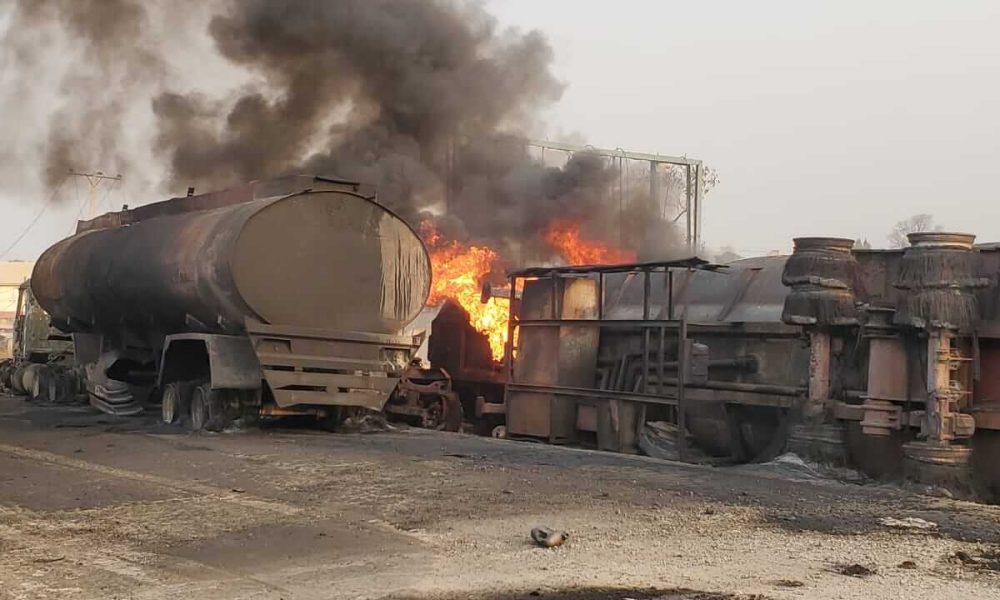President Bola Ahmed Tinubu has directed the establishment of a high-powered committee to investigate the recurrence of tanker explosions in Nigeria and implement comprehensive safety measures to prevent future tragedies.
This was disclosed by the Minister of Information, Mohammed Idris, on Sunday during a visit to the Palace of the Emir of Suleja.
Henzodaily understands that the visit was to commiserate with the victims of Saturday’s tanker explosion at Dikko Junction in Gurara Local Government Area of Niger State.
Idris revealed that the committee will include representatives from the Ministry of Information and National Orientation, the Ministry of Humanitarian Affairs, the Independent Petroleum Marketers Association of Nigeria (IPMAN), tanker drivers’ associations, and other critical stakeholders.
“The government is committed to ensuring that such devastating incidents become a thing of the past. We will also intensify enlightenment campaigns on safe fuel tanker movement, road safety habits, and the dangers of scooping leaked fuel,” Idris said.
Saturday’s explosion claimed the lives of 86 individuals and left 55 others with varying degrees of injuries. Victims were rushed to hospitals in Suleja, which were visited by a delegation led by the Minister of Humanitarian Affairs, Disaster Management and Social Development, Nentawe Yilwatda.
The delegation also inspected the Dikko Junction explosion site, which has become a grim reminder of the dangers posed by fuel tankers on Nigerian roads.
The incident in Niger State follows a series of similar disasters in recent months:
– In January 2025, five people were killed in Agbor, Delta State, when a petrol tanker lost control and burst into flames.
– In September 2024, 59 lives were lost when a fuel tanker collided with a truck carrying passengers and cattle in northwestern Niger State.
– In October 2024, over 170 people died in Jigawa State after a tanker explosion, with many others injured.
These explosions occur as petrol becomes increasingly precious amid Nigeria’s worst economic crisis in decades.
Economic Hardship And Fuel Scarcity
The scarcity and skyrocketing cost of petrol have exacerbated the plight of millions of Nigerians. Since President Tinubu’s administration removed the fuel subsidy in May 2023, petrol prices have spiked more than fivefold, intensifying the country’s economic struggles.
Inflation remains at alarming levels, peaking at over 34% in June 2024 before easing slightly to 32.7% in September. Over 56% of Nigerians are now living below the poverty line, compared to 40% in 2018, according to the World Bank.
